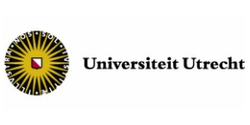PhD Position on Proteomics: The Biology of Protein Lipidation
Updated: 19 Apr 2025
Join our multidisciplinary team to explore the dynamic world of protein lipidation in (neuro)inflammation. We are offering two PhD positions focused on uncovering the regulation and biological roles of this crucial posttranslational modification. Using cutting-edge proteomics and chemical biology tools, you will contribute to advancing our understanding of lipidation in health and disease within a collaborative and internationally recognised research environment.
Your job
Protein lipidation is the attachment of lipids to proteins to regulate their trafficking, protein-protein interactions, and stability. The posttranslational modification is dynamically regulated by a family of lipidation writers and erasers, modifying over 1500 proteins to regulate many facets of human biology in health and disease. Notably, protein lipidation plays a significant role in (neuro)inflammatory disorders, making its regulatory enzymes promising targets for drug development.
As a PhD candidate, you will use (primary) cells and tissues to study the role and regulation of protein lipidation in (neuro)inflammation. In this project, you will operate at the interface of biology and chemistry. Your contributions will advance the development and application of innovative chemical biology and proteomics methodologies to study the regulation of protein lipidation, with a focus on S-palmitoylation. The goal is to uncover how these modifications are regulated and influence proteins that are crucial in (neuro)inflammation.
You will embark on a challenging, multidisciplinary PhD project within an international research environment that offers a wide spectrum of scientific expertise. Over the course of the PhD, you will grow into an independent scientist and become an expert in protein lipidation.
- PhD position 1 is focused on the biology and the regulation of protein lipidation. You uncover the role of the writers and erasers through molecular biology techniques combined with proteomics mass spectrometry.
- PhD position 2 is focused on the development of mass spectrometry proteomics strategies to study protein lipidation by employing a combination of Top-down, Native, and Bottom-up mass spectrometry proteomics strategies.
You will join a multidisciplinary lab with world-leading expertise and infrastructure in proteomics mass spectrometry, complemented by in-house tissue culture and molecular biology facilities. This integrated environment offers a unique opportunity to investigate the biology of protein lipidation in (neuro)inflammatory disorders.
Requirements:
You are a driven researcher with a background in chemical biology/molecular biology. You meet several or all of the following criteria:
- a Master's degree in (Chemical/molecular) Biology or a related field;
- experience in molecular biology and cloning, and in cell culturing techniques;
- excellent writing and presentation skills in English;
- good teamwork skills, with the ability to work both independently and collaboratively in a highly multidisciplinary environment;
- experience in proteomics mass-spectrometry (considered a plus, but not essential at the start).
Salary Benefits:
- A position for four years, in an international multidisciplinary lab;
- a working week of 38 hours and a gross monthly salary between €2,901 and €3,707 (salary scale P under the Collective Labour Agreement for Dutch Universities (CAO NU));
- 8% holiday pay and 8.3% year-end bonus;
- a pension scheme, partially paid parental leave and flexible terms of employment based on the CAO NU.
In addition to the terms of employment laid down in the CAO NU, Utrecht University has a number of schemes and facilities of its own for employees. This includes schemes facilitating professional development, leave schemes and schemes for sports and cultural activities, as well as discounts on software and other IT products. We also offer access to additional employee benefits through our Terms of Employment Options Model. In this way, we encourage our employees to continue to invest in their growth. For more information, please visit Working at Utrecht University.
36 - 40 hours per week
Padualaan 8

